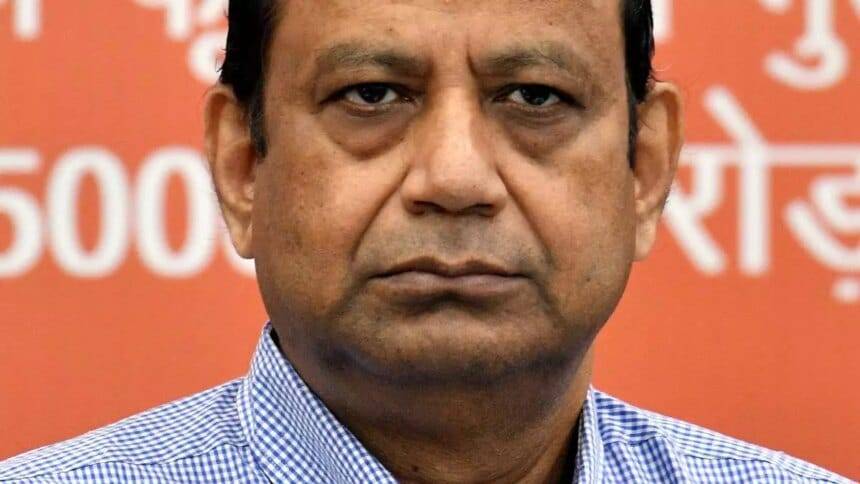Main Points In Hindi (मुख्य बातें – हिंदी में)
-
कृषि समर्थन का अनुरोध: सॉल्वेंट एक्सट्रैक्टर्स एसोसिएशन ऑफ इंडिया (एसईए) ने सरकार से कच्चे पाम तेल (सीपीओ) और कच्चे सोयाबीन तेल में वायदा कारोबार की अनुमति देने का पुनर्विचार करने का अनुरोध किया है, ताकि किसानों को अधिक समर्थन मिल सके।
-
वायदा बाजार का महत्व: एसईए के अध्यक्ष संजीव अस्थाना ने बताया कि एक मजबूत वायदा बाजार मूल्य जोखिम प्रबंधन और कृषि बाजारों के विकास के लिए आवश्यक है, जिससे सभी हितधारकों को विश्वसनीय मूल्य संकेत मिलते हैं।
-
वायदा कारोबार पर रोक: दिसंबर 2021 से विभिन्न कृषि वस्तुओं में वायदा कारोबार का निलंबन चल रहा है, जो अब 20 दिसंबर, 2024 तक बढ़ा दिया गया है। इस प्रतिबंध ने बाजार में अस्थिरता और किसानों को वित्तीय नुकसान का सामना करने के लिए मजबूर कर दिया है।
-
मूल्य अस्थिरता के प्रभाव: वायदा कारोबार की अनुपस्थिति उद्योग को आवश्यक हेजिंग तंत्र और मूल्य खोज से वंचित रखती है, जिससे उन्हें अधिक मूल्य अस्थिरता का सामना करना पड़ता है और परिचालन में बाधा आती है।
- किसानों के लिए समर्थन की आवश्यकता: अस्थाना ने कहा कि सोयाबीन और रेपसीड की मौजूदा कीमतें न्यूनतम समर्थन मूल्य (एमएसपी) से नीचे हैं, जिसके कारण इन वस्तुओं में वायदा कारोबार का पुनरारंभ किया जाना चाहिए ताकि मूल्य स्थिरता और किसानों को समर्थन मिल सके।
Main Points In English(मुख्य बातें – अंग्रेज़ी में)
Here are the main points from the article regarding the Solvent Extractors Association of India’s (SEA) request to the government:
-
Request for Trading Resumption: The SEA has urged the Indian government to reconsider its ban on futures trading for crude palm oil (CPO) and crude soybean oil to provide necessary support to farmers.
-
Importance of Futures Market: SEA President Sanjeev Asthana emphasized that a strong futures market is crucial for price risk management, organized market development, and reliable price signals for all stakeholders, including the government.
-
Concerns Over Recent Regulatory Actions: Following a notice from SEBI extending the ban on futures trading for several agricultural commodities, including edible oils, there are growing concerns among SEA members about market instability and financial losses for importers due to the absence of trading on commodity exchanges.
-
Negative Impact on Industry: The ongoing ban deprives the industry of essential hedging mechanisms and leads to greater price volatility, disrupting business operations and leaving the government without important price signals.
- Call for Policy Change: The SEA urges the government to lift the suspension on futures trading at least for CPO and crude soybean oil, arguing that historical data show that futures markets are effective in supporting price mechanisms and reducing the need for government interventions.


Complete News In Hindi(पूरी खबर – हिंदी में)
सॉल्वेंट एक्सट्रैक्टर्स एसोसिएशन ऑफ इंडिया (एसईए) ने सरकार से किसानों को समर्थन देने के लिए कच्चे पाम तेल (सीपीओ) और कच्चे सोयाबीन तेल में वायदा कारोबार की अनुमति देने पर पुनर्विचार करने का अनुरोध किया है।
केंद्र में विभिन्न मंत्रियों को लिखे पत्र में एसईए के अध्यक्ष संजीव अस्थाना ने कहा कि एक मजबूत वायदा बाजार मूल्य जोखिम प्रबंधन, कृषि बाजारों के व्यवस्थित विकास और सरकार सहित सभी हितधारकों को विश्वसनीय मूल्य संकेत प्रदान करने के लिए महत्वपूर्ण है।
दिसंबर 2021 से, सात कृषि वस्तुओं में वायदा कारोबार का निलंबन समय-समय पर, अब 20 दिसंबर, 2024 तक बढ़ा दिया गया है।
चिंता का कारण
अस्थाना ने कहा कि सेबी के 27 अक्टूबर, 2023 के नोटिस, जिसमें खाद्य तेलों सहित कुछ वस्तुओं के वायदा कारोबार पर प्रतिबंध को बढ़ा दिया गया है, ने एसईए सदस्यों के बीच महत्वपूर्ण चिंताएं बढ़ा दी हैं।
यह कहते हुए कि बाजार में बढ़ी अस्थिरता के कारण कई लोगों को काफी नुकसान हुआ है, उन्होंने कहा कि कमोडिटी एक्सचेंजों पर व्यापार की अनुपस्थिति के कारण आयातकों को वित्तीय घाटे सहित भारी चुनौतियों का सामना करना पड़ा है।
उद्योग को वंचित करना
अध्ययनों ने बार-बार दर्शाया है कि वायदा कारोबार मुद्रास्फीति का एक महत्वपूर्ण चालक नहीं है। इसलिए व्यापार और उद्योग व्यापार फिर से शुरू होने की उम्मीद कर रहे थे, खासकर सीपीओ और कच्चे सोयाबीन तेल जैसी अंतरराष्ट्रीय स्तर पर कारोबार वाली वस्तुओं में। वायदा कारोबार की अनुपस्थिति उद्योग को आवश्यक हेजिंग तंत्र और मूल्य खोज से वंचित कर देती है, जिससे व्यवसायों को अधिक मूल्य अस्थिरता का सामना करना पड़ता है और परिचालन बाधित होता है। इसके अलावा, वायदा कारोबार की अनुपस्थिति भी सरकार को महत्वपूर्ण मूल्य संकेतों से वंचित कर देती है, जिससे सूचना का अंतर रह जाता है, उन्होंने कहा।
उन्होंने कहा, “उद्योग को उम्मीद थी कि परिचालन को सुचारू बनाने के लिए निलंबन हटा लिया जाएगा, लेकिन इस प्रतिबंध के जारी रहने से एक आवश्यक जोखिम शमन उपकरण और कमजोर हो गया है।”
सोयाबीन की मौजूदा कीमत का जिक्र करते हुए अस्थाना ने कहा कि यह न्यूनतम समर्थन मूल्य (एमएसपी) 4,892 रुपये प्रति क्विंटल से नीचे है। रेपसीड की मौजूदा कीमत एमएसपी 5,950 रुपये प्रति क्विंटल से थोड़ी ऊपर है। सोयाबीन, रेपसीड और उनके डेरिवेटिव में वायदा कारोबार फिर से शुरू करने से मूल्य स्थिरता बढ़ेगी और किसानों को बहुत जरूरी समर्थन मिलेगा। उन्होंने कहा, ऐतिहासिक रूप से, वायदा बाजार मूल्य तंत्र का समर्थन करने में प्रभावी साबित हुए हैं, जिससे बाजार हस्तक्षेप योजना के तहत खरीदारी करके सरकार की हस्तक्षेप की आवश्यकता कम हो गई है।
उन्होंने कहा, “हम सरकार से इस फैसले पर पुनर्विचार करने और सेबी को सभी वस्तुओं या कम से कम सीपीओ और कच्चे सोयाबीन तेल जैसी अंतरराष्ट्रीय स्तर पर कारोबार वाली वस्तुओं में वायदा कारोबार फिर से शुरू करने का निर्देश देने की अपील करते हैं।”
Complete News In English(पूरी खबर – अंग्रेज़ी में)
The Solvent Extractors Association of India (SEA) has requested the government to reconsider allowing futures trading in crude palm oil (CPO) and crude soybean oil to support farmers.
In a letter to various ministers in the central government, SEA President Sanjeev Asthana emphasized that a strong futures market is crucial for managing price risks, organizing the development of agricultural markets, and providing reliable price signals to all stakeholders, including the government.


Since December 2021, futures trading on seven agricultural products has been suspended periodically, with the current suspension extended until December 20, 2024.
Concerns Raised
Asthana noted that the Securities and Exchange Board of India’s (SEBI) notice on October 27, 2023, which extended the ban on futures trading for certain products including edible oils, has caused significant concern among SEA members. He explained that increased market volatility has led to substantial losses for many traders and that the absence of trading on commodity exchanges has posed serious financial challenges for importers.
Depriving the Industry
Studies have shown that futures trading does not significantly drive inflation. Therefore, businesses were hoping for a resumption of trading, particularly for internationally traded items like CPO and crude soybean oil. The lack of futures trading deprives the industry of essential hedging mechanisms and price discovery, leading to greater price instability and disrupted operations. Additionally, the absence of futures trading means the government misses critical price signals, creating an information gap.
Asthana expressed disappointment that the suspension has not been lifted to facilitate smoother operations, as it undermines an important risk management tool.
Referring to current soybean prices, he stated they are below the minimum support price (MSP) of ₹4,892 per quintal, while current rapeseed prices are slightly above the MSP of ₹5,950 per quintal. He argued that resuming futures trading for soybean, rapeseed, and their derivatives would enhance price stability and provide necessary support to farmers. Historically, the futures market has effectively contributed to supporting pricing mechanisms, reducing the need for government intervention through market purchase schemes.
Asthana urged the government to reconsider this decision and instruct SEBI to allow futures trading for all commodities, or at least for internationally traded items like CPO and crude soybean oil.




